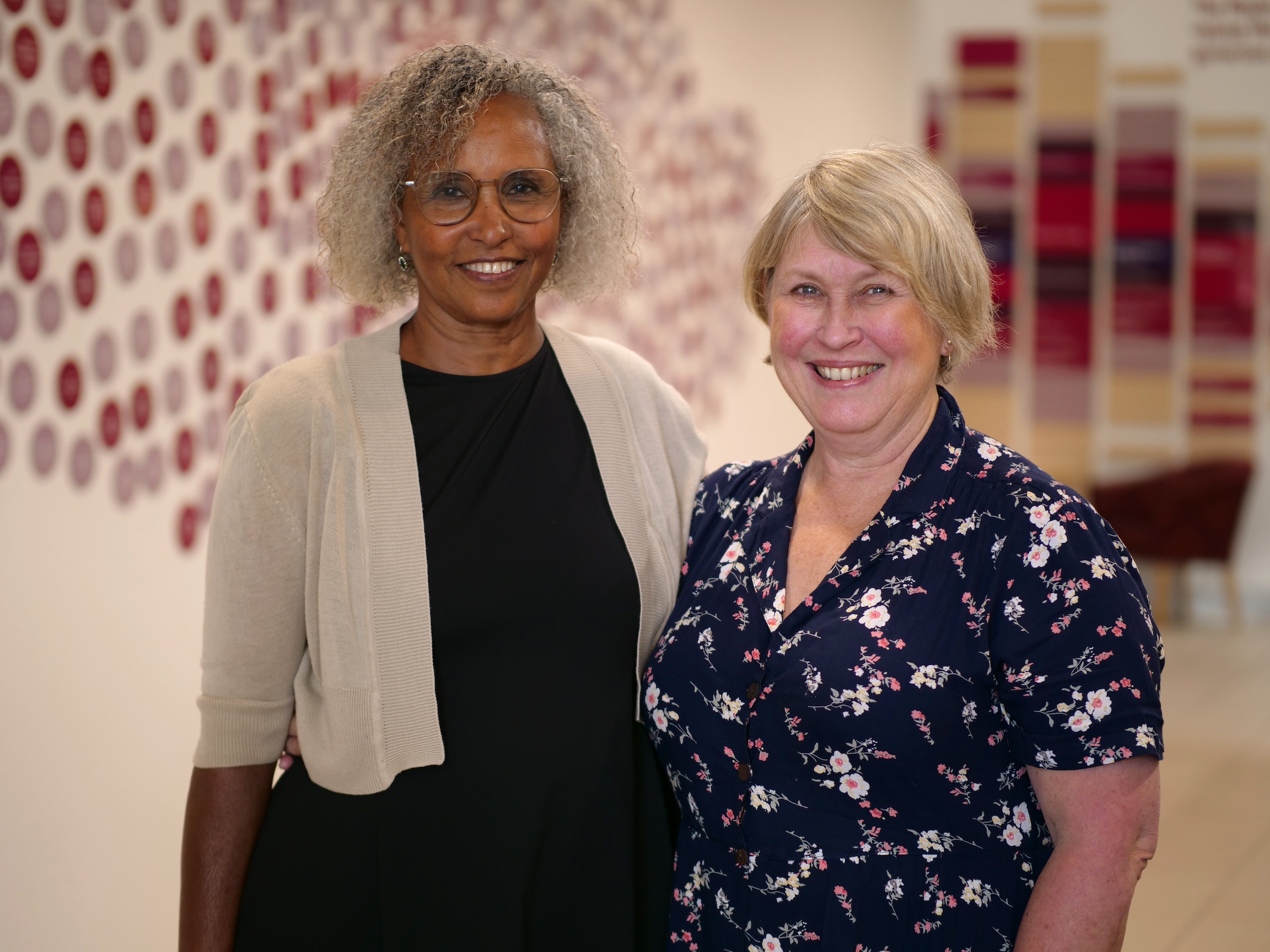By: Kiah Leone
While in Australia, I had the privilege of speaking with Marie Jones and Nigisti Mulholland from The African Women’s Clinic in Victoria, Australia to learn more about their clinic, the services they provide, and the current state of FGM/C-related care in the country.
The African Women’s Clinic (AWC) is the only FGM/C-specific clinic in all of Australia. It’s staffed by women’s health nurses and midwives who provide confidential and comprehensive care to survivors living in the state of Victoria. For the last 14 years, the AWC has offered a safe space for survivors, while also providing FGM/C support and education resources. They have also made medical procedures such as de-infibulation more accessible to survivors.
As a coordinator for the AWC, Marie works closely alongside Nigisti who is a coordinator for the Family and Reproductive Rights Education Program (FARREP)* at the Royal Women’s Hospital. FARREP is a program that provides services for women from places where FGM/C is practiced. Any survivor can self-refer to FARREP and once that contact has been established, a FARREP staff member can help the patient schedule their consultation, accompany them to their appointments, refer them to additional health services if necessary, and advocate for them if any issues arise. This close collaboration between FARREP workers and AWC clinicians has helped to foster an excellent environment to address the issue of FGM/C within a care setting.
Clinic days are often filled with patient consultations, education and information sharing (involving books, diagrams, and mirrors), physical examinations, and deinfibulation procedures (when appropriate). Although clinic days may be busy, the advantage of a specialized clinic is that nurses and midwives at the AWC are able to spend as much time as needed with their patients.
“This is the beauty of a FGM/C-specific clinic,” said Marie.“There is no 15-minute appointments. It might be 30 to 40 minutes or more.”
Not only are staff able to spend more time with patients, but FARREP’s self-refer framework has helped to remove additional barriers to care such as long wait times.
“It’s been wonderful for these women – they don’t have to wait long times to see a clinician, they can see us within two weeks or four weeks, " explained Marie. “If they want de-infibulation on that day we do it on that day or if they want it two weeks later because they need some time to think about it, that’s not a problem, so the clinic has just made it so easy.”
In addition to improving the availability of this type of care, staff at the AWC have also worked to improve the quality of care that survivors in Victoria receive by prioritizing survivors’ safety and comfort.
According to Marie and Nigisti, this often starts by having multiple preliminary conversations to ease any patient concerns before they even arrive in the clinic.
“I think that having this setup has helped them to build confidence in the early days,” said Nigisti. “Before they wouldn’t come for a review, but now they come in for a review and make an appointment to express their feelings and gratitude.”
Once in the clinic, a staff member will usually take a patient history and identify the type of cutting the patient has undergone. They’ll also discuss any health issues they may be experiencing, whether they’re eligible for a de-infibulation procedure, and what steps would be involved if so.
In addition to these services, education remains a cornerstone for staff at the AWC.
“At the AWC, we do education not only in the survivors’ communities, but also for service providers to understand the cultural background and the need to be culturally aware and competent to look after these women,” explained Nigisti.
This need for greater cultural awareness and competency amongst care providers is made clearer when patients share stories with Marie and Nigisti. Patients discuss all kinds of negative healthcare encounters they’ve experienced prior to finding the AWC.
“We’ve had women with traditional cutting who try to find somewhere else to get help and the GPs [general practitioners] don't know about FGM/C and you know the survivors go on for years before they actually find the clinic, but there's lots of lots of stories like that,” Marie elaborates. “We would like to give a lot more education out to the community for all health professionals, so that we get the word out, because even after 14 years, there are still a lot of health professionals and GPs that don’t know that we exist, which is very unfortunate.”
The stories shared here from Marie and Nigisti help to highlight the fact that FGM/C is a global issue that requires both local and international collaboration to address. As Australia’s first and only FGM/C clinic, the AWC has demonstrated a strong commitment to culturally safe and comprehensive care for survivors. In addition to offering a number of specialized services for patients, team members from both the AWC and the FARREP have emphasized the importance of expanding education efforts and a need for further resources in order to make that possible.
To find out more about the African Women’s Clinic – or to learn how you can support the work that they do – please visit the African Women’s Clinic’s website.
*Please note that since this discussion, Nigisti Mulholland has retired. Congratulations on your retirement, Nigisti! Thank you for your years of service supporting the health and well-being of FGM/C survivors.

